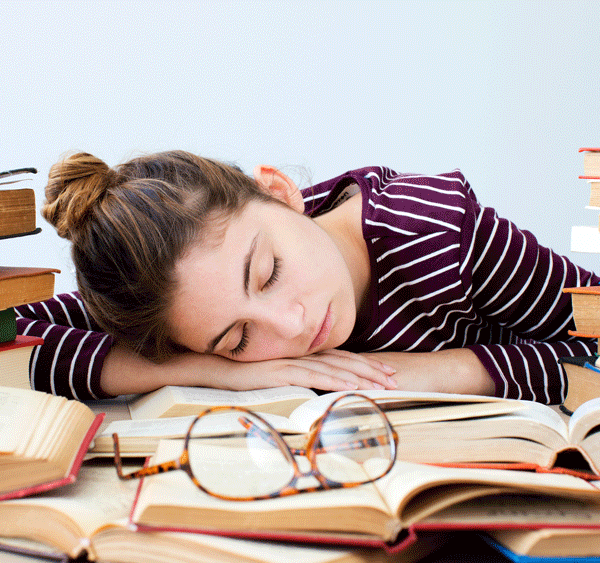Most adolescents require around nine to ten hours of sleep each night due to their increased growth rate and for their brain to carry out functions and to maintain optimal daytime alertness. But few teens actually get that much sleep on a regular basis. Sleep deprivation can have serious consequences. Tired teenagers can find it difficult to concentrate and learn, or even stay awake in class. Too little sleep also might contribute to mood swings, health and behavioural problems.
The following information and tips come from the Better Health Channel.
Effects of Sleep Deprivation:
- Concentration difficulties – ‘drifting off’ in class
- Memory difficulties
- Poor decision making
- Lack of enthusiasm
- Moodiness / bad temper and irritability
- Risk-taking behaviour
- Reduced academic performance
- Increased number of ‘sick days’ from school because of tiredness
- Truancy
- Over-activity and hyperactive behaviour
- Reluctance to get out of bed in the morning
- Loss of motivation
POOR SLEEP = POOR LEARNING – SO WHAT CAN YOU DO?
Tips for Parents
- Try not to argue with your teenager about bedtime. Together, brainstorm ways to increase their nightly quota of sleep.
- Allow your child to sleep in a little later on the weekends.
- Decide together on appropriate time limits for any stimulating activity such as homework, television or computer games.
- Assess your child’s weekly schedule together and see if they are overcommitted. Help them to prioritise and/or trim activities.
Tips for Teens
The typical teenage brain wants to go to bed late and sleep late the following morning. This is not ideal for functioning during the day, particularly at school. To get your body clock into a better routine you could try to:
- Avoid loud music, homework and/or computer games for about an hour before bedtime.
- Do not drink caffeine or caffeinated soft drinks (eg. coke) after dinner.
- Leave your phone and laptop out of the bedroom at night-time.
- Keep your room dark at night. Avoid watching television right before bed. In the morning, expose your eyes to lots of light to help wake up your brain.
- Do the same bedtime routine every night for at least four weeks to make your brain associate this routine with going to sleep.
- Avoid staying up late on the weekends. Late nights will undo your hard work.
- Use relaxation techniques to help you fall asleep quickly.
CYBER-SAFETY TIP
DO NOT keep devices in the bedroom overnight
Having devices in the bedroom at night means that your teen may be woken every time an alert, notification or message comes through. Added to that, you don’t know who your child is communicating with, or what content he or she is accessing.
USEFUL APP
Smiling Mind
Smiling Mind is a free meditation App. It is a simple, easy to use tool. Smiling mind meditations promote many benefits, among them: reducing worries, anxiety and stress; creates a sense of calm and promotes better health and sleep.
MORE SUPPORT
• www.sleepfoundation.org/doze
• www.focuseducation.com.au
• www.sleepsense.net
• Book – Solve your Child’s Sleep Problems by Richard Feber
• Book – The Sleep Sense Program by Dana Obleman
Mrs Tracey Rogers
Deputy Principal Pastoral Wellbeing



